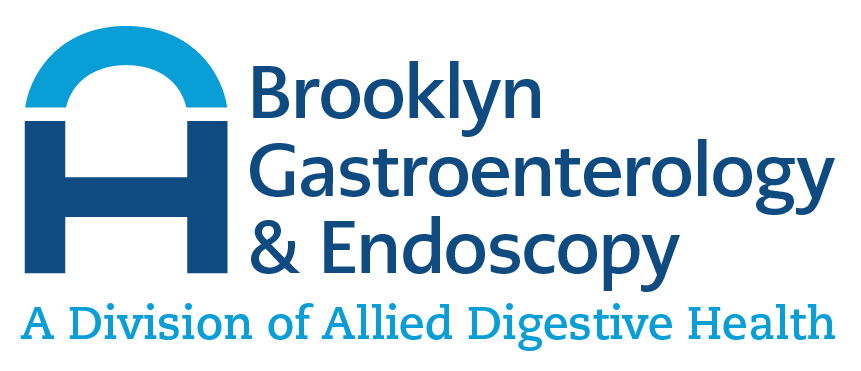What Is Crohn’s and Ulcerative Colitis Management?
Crohn’s disease and ulcerative colitis (UC) are both forms of inflammatory bowel disease (IBD). A patient can have Crohn’s disease, UC, or both types. There is no cure for either, however, symptoms can usually be arrested with proper management through medication and lifestyle. Less often,IBD turns to surgery for management. For example, around 30 percent of patients with ulcerative colitis will ultimately need surgery.
What Are the Differences Between Crohn’s Disease and Ulcerative Colitis?
Both forms of IBD affect men and women the same, they both involve severe inflammation of the digestive tract, and the symptoms for Crohn’s disease and UC are almost identical. However, a few differences set these two apart from each other.
Crohn’s disease can affect the entire digestive tract, from the mouth to the anus. Instead of continuous inflammation, Crohn’s often appears in patches, in between healthy tissue. Crohn’s disease can also penetrate all the layers of the bowel wall.
Ulcerative colitis only appears in the large intestine (colon) and rectum. Instead of appearing in patchy spots, colon inflammation from UC is continuous, always involving the rectum and often other parts of the colon. Ulcerative colitis also only inflames the innermost part of the colon, as opposed to all layers in Crohn’s disease.
How Is Crohn’s Disease Managed?
Crohn’s disease can often be managed through medication and diet. However, just under half of those with Crohn’s disease will have at least one related surgery in their lifetime. There are several different types of medications used to manage Crohn’s disease symptoms:
- Anti-inflammatory drugs. These drugs work at reducing inflammation.:
- Corticosteroids. Corticosteroids such as prednisone and budesonide can work to reduce the inflammation associated with Crohn’s disease. They may also be prescribed alongside an immune system suppressor.
- Oral 5-aminosalicylates. These are also anti-inflammatory drugs that can reduce inflammation for both Crohn’s and UC.
- Immune system modulators:. These drugs are also anti-inflammatory in nature but target the immune system specifically. Some of these include:
- Azathioprine and mercaptopurine. These are commonly uesd to manage Crohn’s disease. However, they do require close monitoring, as they may produce unwanted side effects like decreased white and red blood cell counts and liver inflammation.
- Methotrexate. This is a less widely used immunosuppressive therapy but may be considered for Crohn’s disease patients when other treatments haven’t worked. This drug also requires close medical supervision.
- Biologics. These treatments focus on proteins manufactured by the immune system. These are now often first-line treatments for moderate to severe levels of crohn’s disease and can also work well for patients who have not responded to previous therapies. They include:
- Vedolizumab. This agent stops integrins (cell molecules) on white blood cells from binding to other cells in the intestinal lining. Through that mechanism of action, they reduce the number of white blood cells entering the gastrointestinal tract, and thus leading to reduced inflammation in the affected areas of the gut.
- Infliximab, adalimumab, and certolizumab pegol. These biologics target and neutralize an immune system protein known as tumor necrosis factor (TNF-alpha).
- Ustekinumab, This newer biologic targets the protein interleukin, which contributes to inflammation.
- Other medications. Depending on your individual case of Crohn’s, your gastroenterologist may prescribe several medications in combination with each other for a more positive treatment outlook, particularly when it comes to symptom management. These include:
- Antibiotics. These may work to limit drainage from abscesses and fistulas in those with Crohn’s disease. Antibiotics may also reduce “bad” intestinal bacteria, however, more research is needed.
- Anti-diarrheal medications. Your physician may recommend an over-the-counter fiber supplement to help manage diarrhea symptoms. Psyllium powder or methylcellulose can treat mild-to-moderate cases of diarrhea, while loperamide is often used in severe cases.
- Pain relief management. Taking nonsteroidal anti-inflammatory drugs (NSAIDs) like ibuprofen and naproxen can worsen symptoms in patients with Crohn’s. Your doctor will likely recommend acetaminophen for pain relief.
- Vitamins and supplements. In IBD, it’s common for vitamins and minerals not to absorb properly. If so, your physician may recommend certain supplements to ensure you’re hitting your daily requirements.
Beyond medications, there are other ways to manage Crohn’s disease. Your provider may recommend a special diet (along with medication) to treat the disease and improve overall nutrition. A feeding tube (enteral nutrition) or nutrients delivered intravenously (parenteral nutrition) are both types of nutrition therapy used widely to manage Crohn’s disease.
The last type of Crohn’s management is surgery. A surgeon removes a damaged portion of the GI tract during a surgical procedure and replaces it with healthy tissue. This can cause remission, but inflammation due to Crohn’s disease flare-ups often returns after surgery.
How Do I Manage Crohn’s Disease Flare-ups?
There are some preventative measures you can take to avoid Crohn’s flare-ups. Be sure to let your doctor know at the first sign of a flare-up so they can examine you. To help prevent flare-ups:
- Stop smoking
- Do not take NSAIDs.
- Reduce stress (stress contributes to inflammation).
- Limit caffeine and alcohol.
- Make dietary changes.
Dietary changes that are often suggested include reducing consumption of greasy and fatty foods, eliminating dairy, avoiding gas-producing foods such as beans, and eating only well-cooked vegetables.
How Is Ulcerative Colitis Managed?
Even though it is a different condition, the medical management of UC is roughly the same as that of Crohn’s disease: anti-inflammatory drugs, immunosuppressors, and biologics. Oral 5-aminosalicylates such as mesalamine is typically used as a first line agents for mild-moderate ulcerative colitis. Your doctor may also recommend Janus kinase (JAK) inhibitors, which interact with enzymes to limit inflammation. The same diet and adherence to lifestyle changes (such as quitting smoking) are also recommended for UC management.
Systemic corticosteroids are not recommended as UC maintenance post-remission. However, continuing with anti-TNF therapy, vedolizumab, and/or tofacitinib is recommended, according to the American College of Gastroenterology.
Surgery is an option when patients do not respond to medication and lifestyle changes. The two main types of surgeries used to treat ulcerative colitis are proctocolectomy and ileoanal pouch (J-pouch surgery) and proctocolectomy and ileostomy.
How Do I Manage Ulcerative Colitis Flare-ups?
Just as with Crohn’s disease, let your doctor know right away if you feel a flare-up coming on. Advice for management and preventative measures for UC are very much the same—quit smoking, limit alcohol, do not take NSAIDs, and avoid spicy foods. However, you can also manage potential flare-ups by eating smaller meals (every two to four hours) and by keeping a food diary, so you can keep track of what foods may trigger either Crohn’s disease or ulcerative colitis symptoms.

